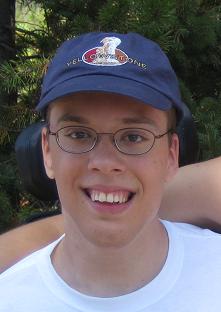Modify the System not the Person
From the Disability Rights Education & Defense Fund:
"Benevolence" and "good intentions" have often had disastrous consequences for the disability community.
and
We deeply empathize with parents who face difficult issues raising children with significant physical and intellectual disabilities. However, we hold as non-negotiable the principle that personal and physical autonomy of all people with disabilities be regarded as sacrosanct. (my emphasis) For decades, parents, families, and the disability community have been fighting for this principle, and for community-based services for children and adults that make it a reality. Their advocacy led to enactment of state and federal laws in the 1970s that establish extensive rights to full personhood for children and adults with disabilities. These laws were passed to remedy our shameful history of abuse and mistreatment of people just like Ashley.
and
As parents and adults with disabilities, our experience demonstrates unequivocally that all people with disabilities can be an integral part of home and community, if needed help and support is available. It is not always easy to find home care workers who are competent and empathetic. Too often, we must fight to persuade social service and healthcare bureaucracies that help at home and appropriate equipment such as adapted wheelchairs and mechanical lifts are essential and fundamental to our autonomy. However, if these problems seem insurmountable, or cannot as a practical matter be surmounted, as Ashley's parents suggest, then it is all our duty to change the system so it works rather than find novel ways to modify people so that they will more easily "fit" a flawed system. (my emphasis)
And this question...
Where, we wonder, was the network of programs and services that exist in every state when Ashley's family decided the best option was to employ medical procedures that violated their daughter's autonomy and personhood?
And finally, they note the sad irony of the treatment of this child and the recent United Nation Convention on the Protection and Promotion of the Rights and Dignity of Persons with Disabilities.
You can read the whole statement from the Disability Rights Education & Defense Fund here.










5 comments:
So by sacrosanct you mean me and my wife desecrated my son's body by removing 2 of his 12 finger digits, repairing his cleft palette, and inserting a trache into his neck?
All I can say is what *you* did seems absolutely right...it *gave* your son things when you fixed the palate, and added the trach.
All of those things seem like *adding* things to his situation to improve it.
Sounds fine to me.
Hi David!
I found the link to your blog on CNN.com after reading the story about the Ashley Treatment. I just wanted to comment to let you know how incredibly intelligent, insightful, and profoud you seem. You are truly an inspiration - your words really made me think about what it is to be human. That being said, I am proud that you are my fellow human and I look forward to reading your posts on a daily basis.
Cheers! :D
Christina
Age 19, Williamsburg/Winchester, VA
Hi David...
I found your blog by reading the CNN article and doing a search.
Thank you, thank you, thank you!
I've been waiting to hear someone say something about the flawed system. Sure, I agree with Ashley's parents that it is more for their daughter to be included if she has an adult body. To me, ths means that we are failing those with adult bodies who have disbilities! What scares me about it tthe most is that when her body and society don't mesh easily, we label her body as problematic, rather than seeing the need for a societal shift that makes space for her.
-Kristen
24/PA
The whole "Ashley" issues has me very perplexed. I agree with you that the system needs to be challenged. However, in a cryptic sort of way, I think Ashley's parents are challenging the system by doing something so drastic.
I was appalled with their decision initially, but after reading their story, I truly feel they did this with the best intentions for her well being and overall quality of life.
My disabled daughter is not like Ashley, but I constantly wonder if we will consider the Ashley Treatment later in her life. I just don't know, but I also agree with you in a sense too.
Post a Comment